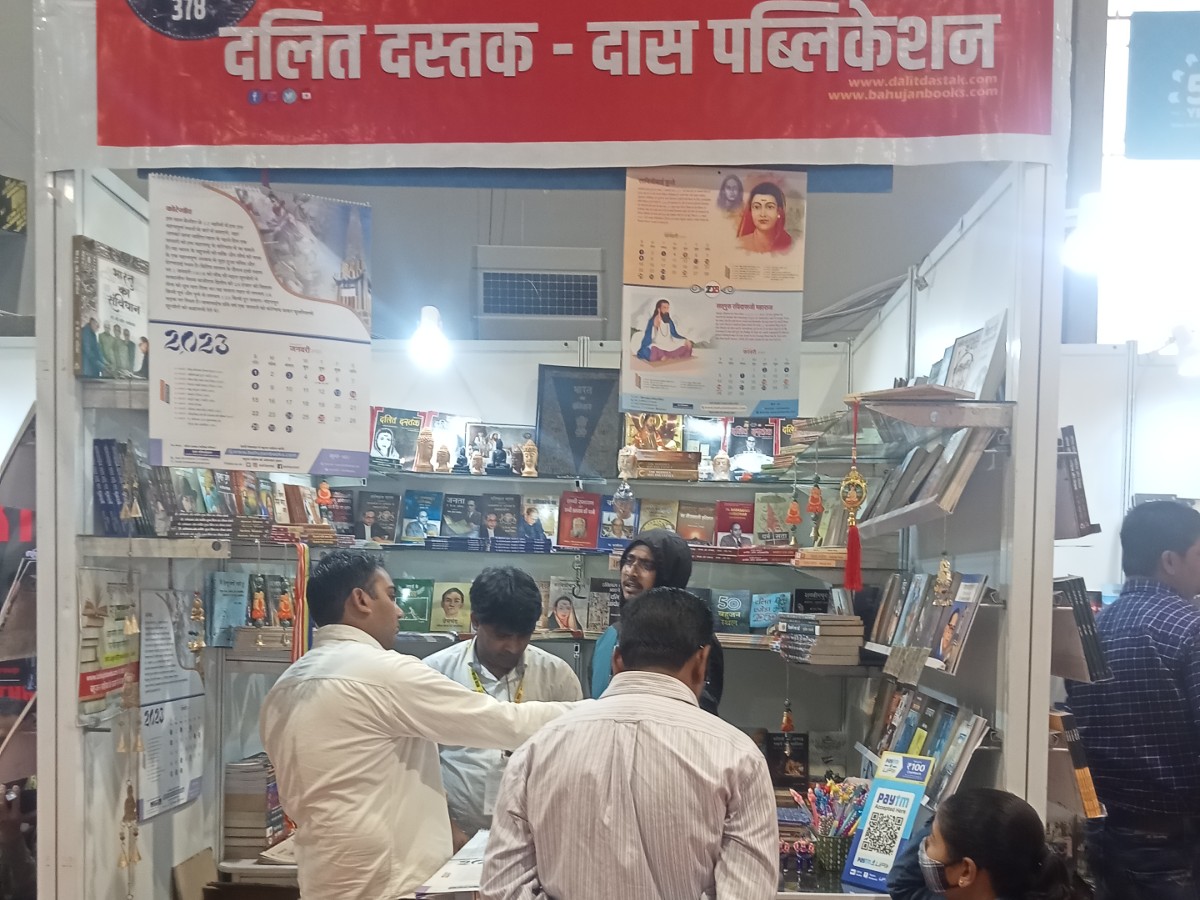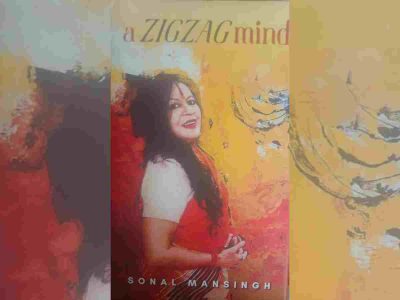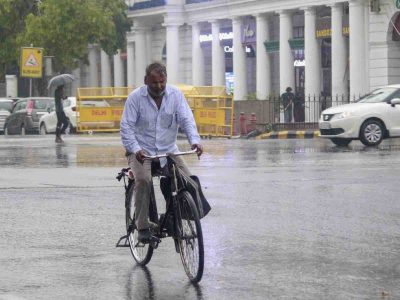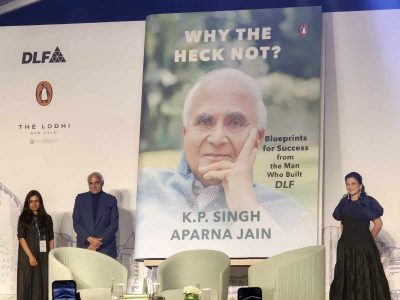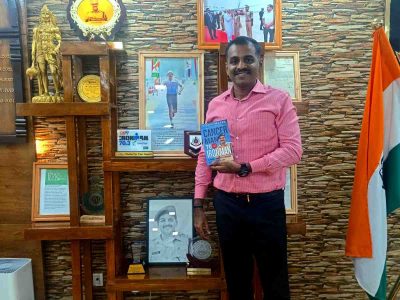At first glance, the 31st edition of the World Book Fair looks more than just a book fair. A number of cultural events — regional dances, folk and patriotic songs — are being hosted in the Pragati Maidan amphitheatre. Visitors can be seen carrying bags full of books and Penguin tote bags. The obsessive book hoarders have bags as big as suitcases filled with books.
As one enters the halls, one is welcomed by an array of pavilions set on various themes. There is a pavilion for children and pavilions for various international destinations such as Dubai, Iran, and France, among others.
The inauguration of the event on September 25 was marked by Nobel laureate Annie Ernaux as in this edition of the book fair, France has been named the guest of honour. The event, which will go on till March 5, will be attended by a total of 16 French authors.
Children’s pavillion
What made this edition special is the massive response the children’s pavilion has received. On the first day itself, a lecture-performance of A Nestful of Light by poet Khartika Nair and French illustrator Joelle Jollivet was held, followed by a session by a children’s writer and poet from Russia – Anastasia Orlova – on why it is important to read to the little ones. The day saw other writers sharing their stories about reading habits among children.
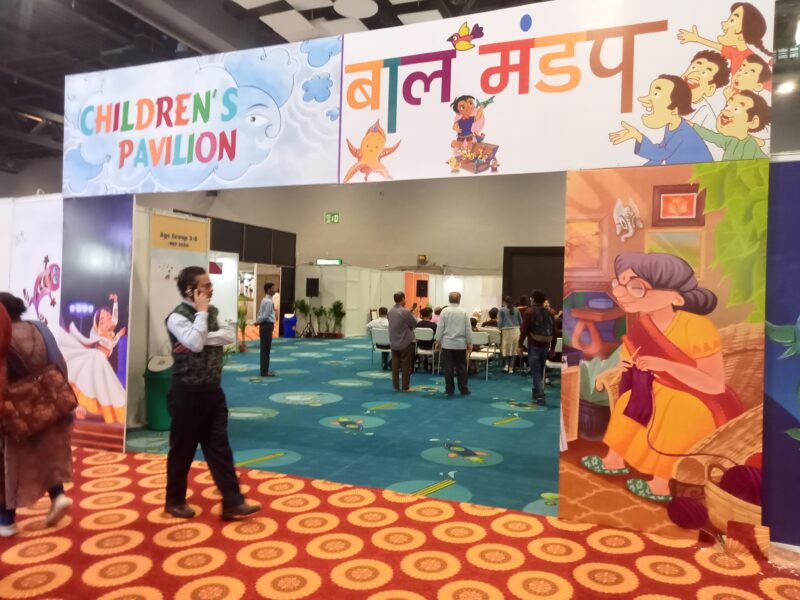
“We have been waiting for the fair for a long time. I believe that it is very important to inculcate reading habits in children in the digital age. It’s very important to expose them to print media as that will help them in learning more efficiently,” said one of the parents at the National Book Trust stall.
Large turnout
On Sunday, the second day of the festival, the fair saw a huge turnout. So much so that the organisers had to extend ticket sale timings to cater to the high demand. It also saw the international corner filled with events of various kinds with writers from various languages.
In the first session Discussing Experiences of Writing Historical Fiction, Nisar Ahmad, author of Firang Ka Qaidi (Urdu), Jaspreet Kaur, author of Ghadar di Raah ‘Te (Punjabi), Monika Rana, author of Kinarharu (Nepali), Madhav Sharma, author of Shaheedon ki Shaan: Mangarh Dhaam in (Hindi), and Nishtha Chhabra, author of Cryptic Columns (English) talked about trying to understand the lived experience of the freedom fighters and addressing the less talked about French colonisation in India. This was followed by discussions around the history of non-narrative fiction and the importance of picture books for children.
Regional languages
Apart from stalls in English, Urdu, and Hindi, stalls in regional languages could also be spotted around the halls. Stalls in languages such as Bengali, Malayalam, Maithili and Tamil were thronged by visitors. Sudipta Chakraborty of Praul Prakashan says, “Since the book fair is being held after two years, there are people who are willing to buy books in regional languages. But the response remains much lower than books in English, Urdu and Hindi since we are in New Delhi. But this time, I can say with certainty that the response by the audience is much better than the last time the fair was held.”
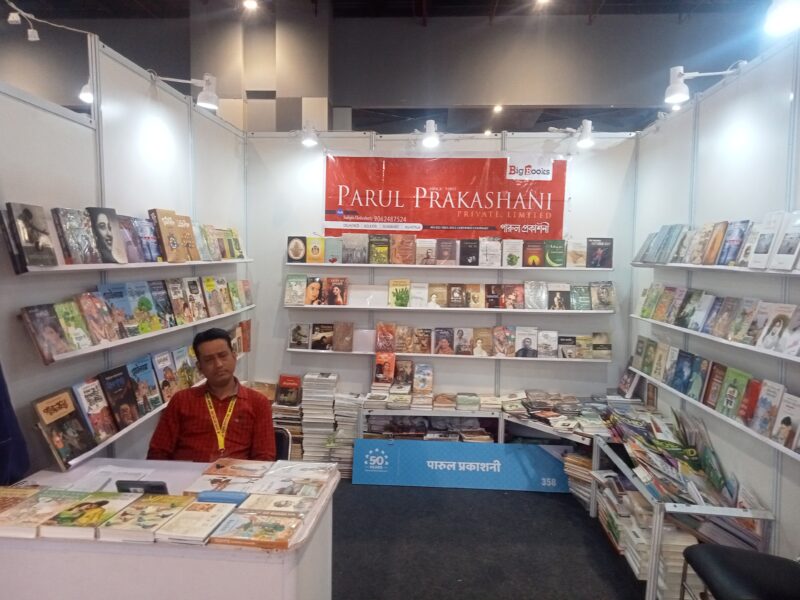
Arun Nath of New Century Book House, which sells books in Tamil, came to Delhi to attend the fair. However, he is a bit disappointed by the response as many visitors come to the stall but don’t buy books. “We are at a place where people mostly speak Hindi. It’s good that people are trying to know literature written in other languages as well. But they do not buy as many books. This was also expected,” he says.
Kerala bookstore Malaya Manorama has a presence in Delhi that mostly sells magazines such as The Week, the Manorama yearly book and newspapers in Malayalam. While the visitors of Delhi prefer to buy Hindi and English books from the store, those who come from Kerala browse books written in Malayalam. “I have been putting my stall here for almost six years now. I have specifically exhibited Hindi and English books so that people come to the stall. Apart from Hindi and English books, many people are coming for Malayalam literature as well,” says Krishna Kumar, owner of the stall.
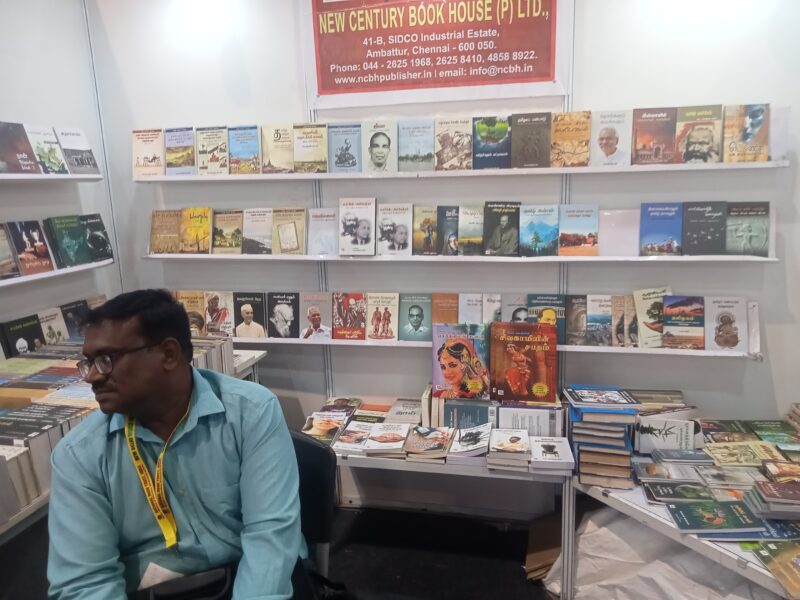
This year, the number of stalls that sell second-hand books was far less than in previous years. Those present could not draw a lot of audience as people mainly throng big publishers such as Penguin. While there were not many non-fiction titles in Penguin stalls, independent publishers had put on display books that attracted visitors to the point of them inquiring about the titles.
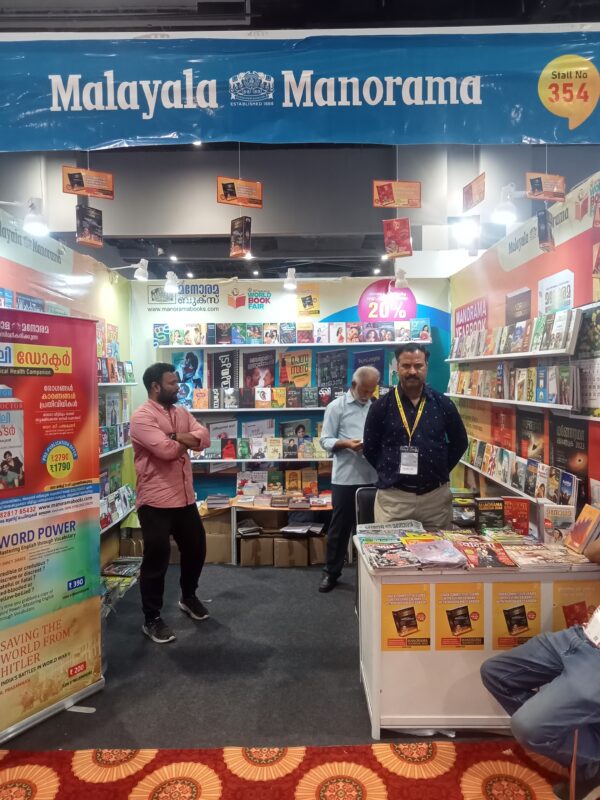
Radical literature
Radical literature around Marxism and Ambedkarism could also be spotted in the corner. Janchetna, a publishing house that specifically prints Marxist and radical leftist literature, sold posters with the words of revolutionary writers such as Pash, Muktibodh and Bertolt Brecht, among others, as a part of a project that popularises different art forms among the working class.
“Most of the visitors who are buying books here are college-going students. The response has been good so far,” says one of the volunteers present at the stall.

The Dalit Dastak stall attracted a lot of audience. The stall offers books by BR Ambedkar and calendars, posters, and other souvenirs around Dalit pride.
Apart from being a haven for book lovers, World Book Fair also served as an International platform for various business opportunities in the publishing industry. The New Delhi Rights Table – Publishing Conference – was being organized on the sidelines on February 27 and 28 where, on the first day, over 80 publishers from India and 12 other countries met and exchanged their business interests like selling and buying book rights of their respective titles.
The event, which is scheduled to go on till March 5, has been organised by the National Book Trust (NBT) in collaboration with the India Trade Promotion Organisation (ITPO).

